
Artículos Científicos
Consulte las principales publicaciones científicas que mencionan los productos Angelus
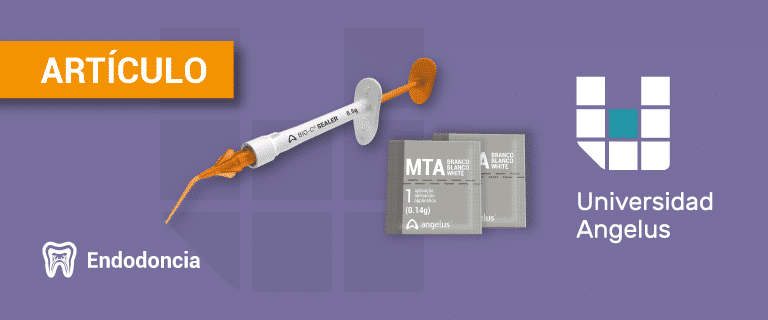
Biological assessment of a new ready-to-use hydraulic sealer
RESUMEN:
Bio-C Sealer and white MTA-Angelus exhibited greater cytocompatibility than MTA-Fillapex; all materials displayed adequate biocompatibility and induced tenascin immunolabeling.
REFERENCIA:
BENETTI, F.; ET AL. Biological assessment of a new ready-to-use hydraulic sealer. Restor Dent Endod. 2021 May;46(2):e21
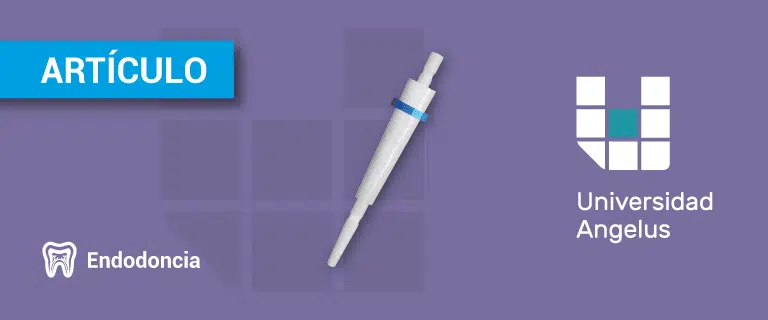
Push-out bond strength and failure mode of single adjustable and customized glass fiber posts
RESUMEN:
SAP showed better performance than CP. The root third and resin cements did not influence the PBS. The most prevalent failures were adhesive and mixed. Push-out bond strength
REFERENCIA:
LOPES, L.D.S., ET AL. Push-out bond strength and failure mode of single adjustable and customized glass fiber posts. Saudi Dental Journal (2021) 33, 917–922
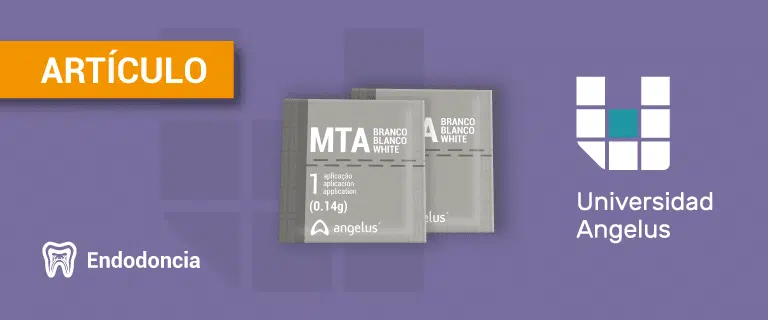
Repair of a Perforation Defect With Calcium-Silicate-Based Cement Using an Internal Matrix: Case Report
RESUMEN:
The use of an internal matrix of absorbable collagen provides good control for condensation of MTA against the matrix. If in the present case the plug had not been placed correctly, the seal would have been poor. Therefore, the use of the synthetic collagen material matrix enabled the MTA to be placed correctly, which in turn maximized the seal. Further studies are needed to develop the internal matrix placement approach into a standardized method so that the matrix may be placed correctly each time it is used
REFERENCIA:
SRIVASTAWA,J..Repair of a Perforation Defect With Calcium-Silicate-Based Cement Using an Internal Matrix: Case Report. Compendium,February 2021
Volume 42, Issue 2
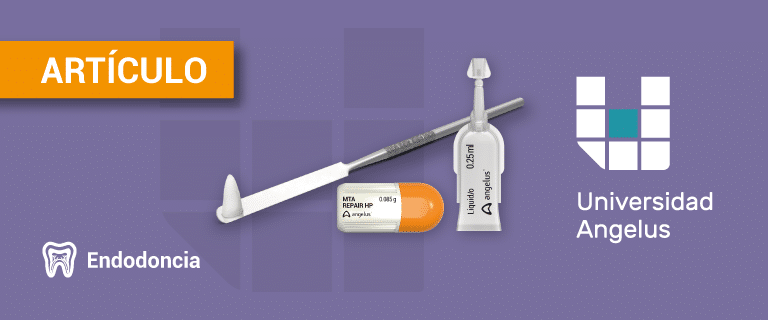
Push-out bond strength and marginal adaptation of apical plugs with bioactive endodontic cements in simulated immature teeth
RESUMEN:
The bond strength and marginal adaptation to root canal walls of MTA HP and Biodentine cement were comparable to white MTA.
REFERENCIA:
AS, M.A.B.; ET AL. Push-out bond strength and marginal adaptation of apical plugs with bioactive endodontic cements in simulated immature teeth. Restor Dent Endod. 2021 Nov;46(4):e53
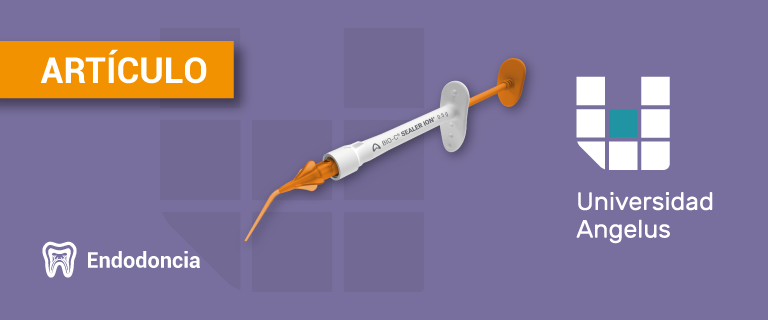
A Decision Making: Implant or Endodontic Treatment? A Case Report
RESUMEN:
The present report describes the successful treatment of a tooth with an endo-perio lesion and an extensive area of bone resorption. The possibility of extraction and dental implant was discussed with the patient. Chemomechanical preparation was performed, and canals were filled with bioceramic cement and gutta-percha cones. After 12 months, clinical and radiographic evaluations showed remarkable remineralization. The decision to perform the endodontic treatment or implant was based on scientific evidence and correct clinical assessment.
REFERENCIA:
AMARAL. R.R.; ET AL. A Decision Making: Implant or Endodontic Treatment? A Case Report. Acta Scientific Dental Sciences (ISSN: 2581-4893) Volume 5 Issue 11 November 2021

Atividade antimicrobiana de novos cimentos endodônticos biocerâmicos
RESUMEN:
O Bio-C Sealer e o Sealer Plus BC apresentaram maior atividade antimicrobiana que o AH Plus contra biofilmes de E. faecalis nos testes direto e indireto. Além disso, Sealer Plus BC apresentou o melhor efeito na biomassa do biofilme. ANTIMICROBIAL EFFECT
REFERENCIA:
VIANA, F.L.P.; ET AL. Atividade antimicrobiana de novos cimentos endodônticos biocerâmicos. Research, Society and Development, v. 10, n. 8, e52910817593, 2021

Evaluation of curved root canals filled with a new bioceramic sealer: A microcomputed tomographic study using images with different voxel sizes and segmentation methods
RESUMEN:
Bio-C Sealer had appropriate filling ability. Visual and automatic segmentation can be applied to micro-CT images with voxel sizes from 5 to 20 μm to evaluate the filling of sealers with adequate radiopacity. Automatic segmentation should be used as a faster method.
REFERENCIA:
PINTO, J.C.; ET AL. Evaluation of curved root canals filled with a new bioceramic sealer: A microcomputed tomographic study using images with different voxel sizes and segmentation methods. Microsc Res Tech. 2021;1–8.
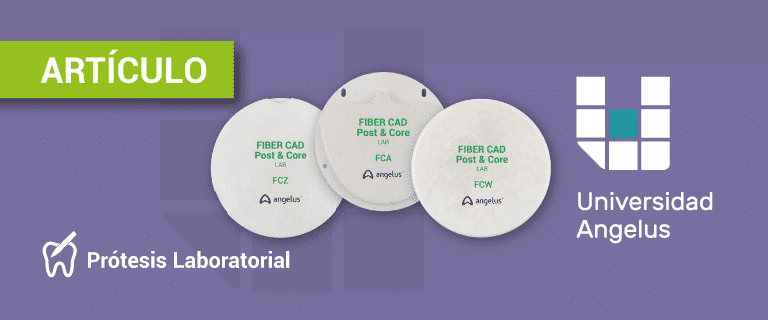
Uso de Pino de Fibra confeccionado pela tecnologia CAD/CAM
RESUMEN:
CLINICAL CASE: mostrando o pino fresado como excelente alternativa aos NMF em dentes com ampla destruição
REFERENCIA:
DRÖGMÖLLER, L.F.; ET AL. Uso de Pino de Fibra confeccionado pela tecnologia CAD/CAM. Implant News Reab Oral. 2021; 6(2): 298-305

Management of a large, invasive, external, cervical root resorption of a maxillary canine: a case report with a 2-year
RESUMEN:
A 2-year clinical and radiologic follow-up showed complete absence of the signs and symptoms associated with the resorption pathology and repair of the lesion. RESORPTION
REFERENCIA:
PANDYA, P.D.; ET AL . Management of a large, invasive, external, cervical root resorption of a maxillary canine: a case report with a 2-year follow-up. https://endopracticeus.com/management-of-a-large-invasive-external-cervical-root-resorption-of-a-maxillary-canine-a-case-report-with-a-2-year-follow-up/octubre_2021

SAC
Servicio Especializado de Atención al Consumidor
De lunes a viernes, de 7h30 a 17h30 (GMT-3).